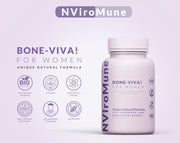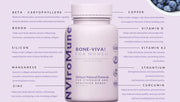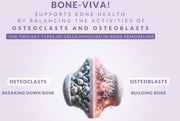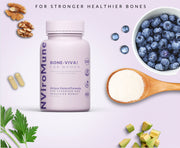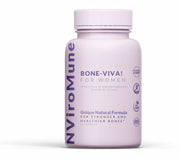High-Risk Groups for Osteoporosis
- Women are more likely to develop osteoporosis due to the decrease in estrogen levels that occurs during menopause, which can accelerate bone loss.
Age is a significant risk factor. As people age, bone density naturally decreases, making them more susceptible to osteoporosis.
Genetics play a role in bone health. Individuals with a family history of osteoporosis are at greater risk.
People with lower body weight and smaller frames tend to have less bone mass to begin with, which can increase the risk of osteoporosis.
Caucasian and Asian individuals have a higher risk of osteoporosis compared to African American and Hispanic individuals.
Conditions that affect hormone levels, such as thyroid disorders, parathyroid disorders, or low levels of sex hormones (estrogen in women and testosterone in men), can increase the risk of osteoporosis.
Low intake of calcium and vitamin D, which are crucial for bone health, can contribute to the development of osteoporosis
Lack of physical activity, particularly weight-bearing and strength-training exercises, can weaken bones over time.
Smoking and high alcohol intake are known to negatively impact bone health and increase the risk of osteoporosis
Conditions such as rheumatoid arthritis, lupus, celiac disease, and inflammatory bowel disease can increase the risk of osteoporosis.
Disorders of the parathyroid glands, which regulate calcium levels in the body, can lead to imbalances that affect bone density and increase the risk of osteoporosis.
Long-term use of corticosteroids and other medications that affect bone density can increase the risk of developing osteoporosis.
Osteoporosis is a condition characterized by weakened bones and an increased risk of fractures. Certain groups of people are at a higher risk of developing osteoporosis. Understanding these risk factors can help in taking preventive measures and seeking early treatment to manage bone health effectively.
RECOMMENDATION FOR THE BEST OUTCOME BONE-VIVA SHOULD BE TAKEN DAILY FOR AT LEAST 12 MONTHS .

SCIENTIST AND DOCTOR BEHIND BONE-VIVA!
Formulated by Dr. Norman Gaylis, with over 40 years of experience in osteoporosis research and treatment, and Yossi Mograbi, a scientist with 30 years of expertise in developing natural nutraceutical formulations for various conditions.










